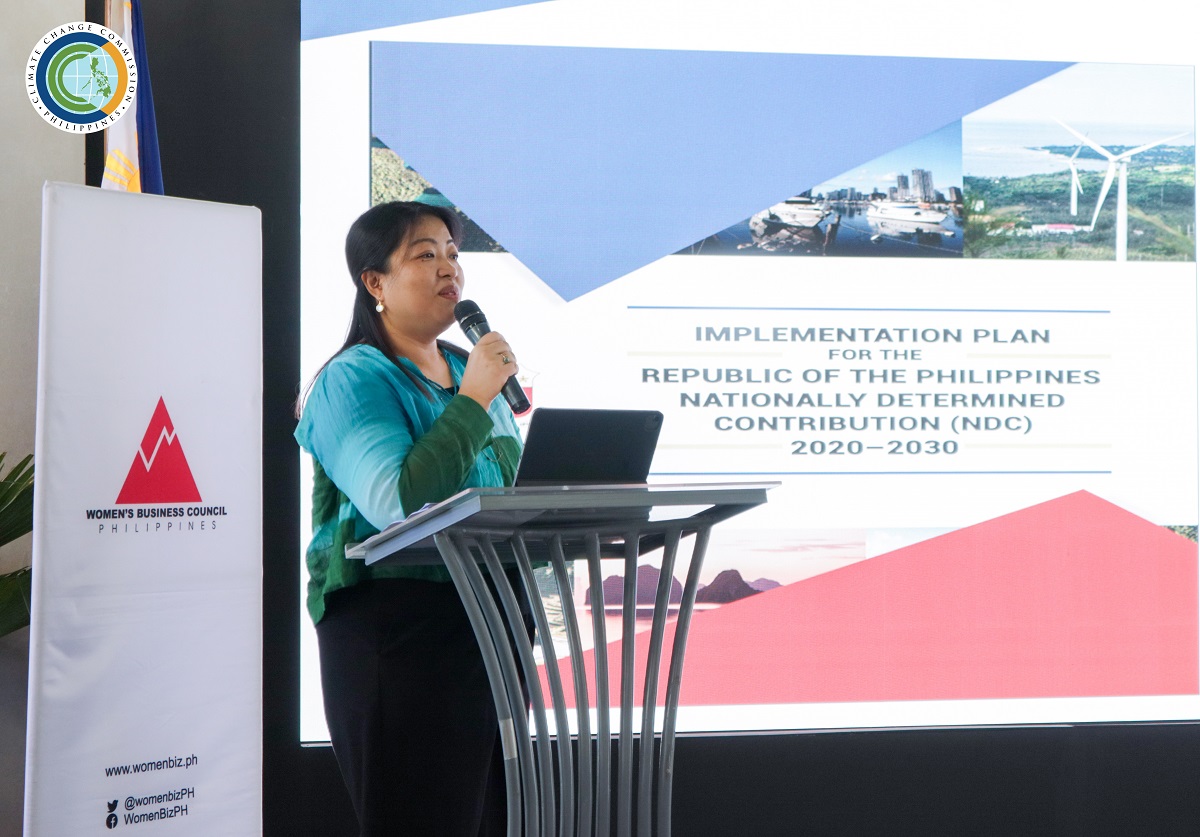
CCC pushes women-led climate action, resilient livelihoods
April 03, 2025 Thursday
The Climate Change Commission joins a multi-stakeholder workshop to promote women at the center of climate action and climate-resilient livelihoods.
Pasig City – The Climate Change Commission (CCC) emphasized the integration of gender in climate action and in programs to strengthen the resilience of micro, small, and medium enterprises (MSMEs) against the threat of climate change during a recent workshop and networking event.
The discussions focused on the intersection of gender and climate change, particularly on equipping women-led enterprises with the capacity to adapt to climate challenges.
CCC Commissioner Rachel Anne S. Herrera highlighted the Nationally Determined Contribution Gender Action Plan (NDC GAP) as a framework to support gender-responsive and inclusive approaches in achieving the country’s NDC targets—which aims to reduce greenhouse gas emissions by 75% by 2030.
She emphasized that the agricultural, waste, industry, transport, and energy sectors are traditionally considered male-dominated in terms of labor composition especially for those in senior-level management, yet when given the opportunity, women can thrive not just as skilled workers but as industry leaders.
Commissioner Herrera also cited the National Adaptation Plan (NAP) as a guide for achieving climate-resilient businesses.
“With livelihoods and infrastructure as key focus areas of NAP, MSMEs, which comprise 99% of businesses in the Philippines, need to be equipped with the capacity to invest in climate-resilient infrastructure, technology, and adaptation measures,” Herrera mentioned.
She outlined two key initiatives, which will be supported under the TRANSCEND Project being implemented by the CCC and DENR, with support from the German Government, to help MSMEs become climate-smart and resilient.
“The development of a Climate-Smart Industry Roadmap will guide MSMEs in enhancing energy efficiency and climate resilience,” she said.
“Another key initiative is providing direct support to small-scale manufacturing and food processing enterprises to build their capacity for energy-efficient operations, alongside policy support at the national level,” Herrera added.
Undersecretary Blesila Lantayona of the Department of Trade and Industry (DTI) Regional Operations Group recognized women as powerful agents of change, capable of building sustainable communities.
"I stand with you to affirm the Department of Trade and Industry’s unwavering dedication to this cause, alongside the broader efforts of the Philippines to champion climate resilience," she added.
Ms. Rhoda Castro-Caliwara, President of the Women’s Business Council Philippines, Inc. (WomenBizPH), emphasized that climate change directly impacts the business sector. She noted that extreme weather events, such as scorching heat, floods, and earthquakes, increase costs and disrupt operations.
Caliwara also pointed out that the event provided an opportunity for knowledge-sharing and best practices to promote sustainability, empower women, and advance multi-stakeholder collaboration.
Meanwhile, Secretary Robert E.A. Borje, CCC Vice Chairperson and Executive Director, highlighted the broader impact of such networking events.
“Strengthening partnerships creates opportunities to put women at the center of climate action. This not only empowers women but also fosters a unified and collaborative approach to building a climate-resilient business sector,” he stated.
Held under the theme "Kababaihan, Kalikasan, Kabuhayan – Building Climate-Resilient Livelihoods for Women," the event was led by the Department of Trade and Industry, WomenBizPH, and UN Women. It was supported by the governments of New Zealand, Germany, Sweden, and Switzerland through the global EmPower Program of UN Women.
It brought together business and industry, national government agencies, and civil society organizations advocating for gender equality, ecological sustainability, and enterprise development.
For more information on the CCC’s climate mainstreaming activities, visit www.climate.gov.ph and www.facebook.com/CCCPhl.